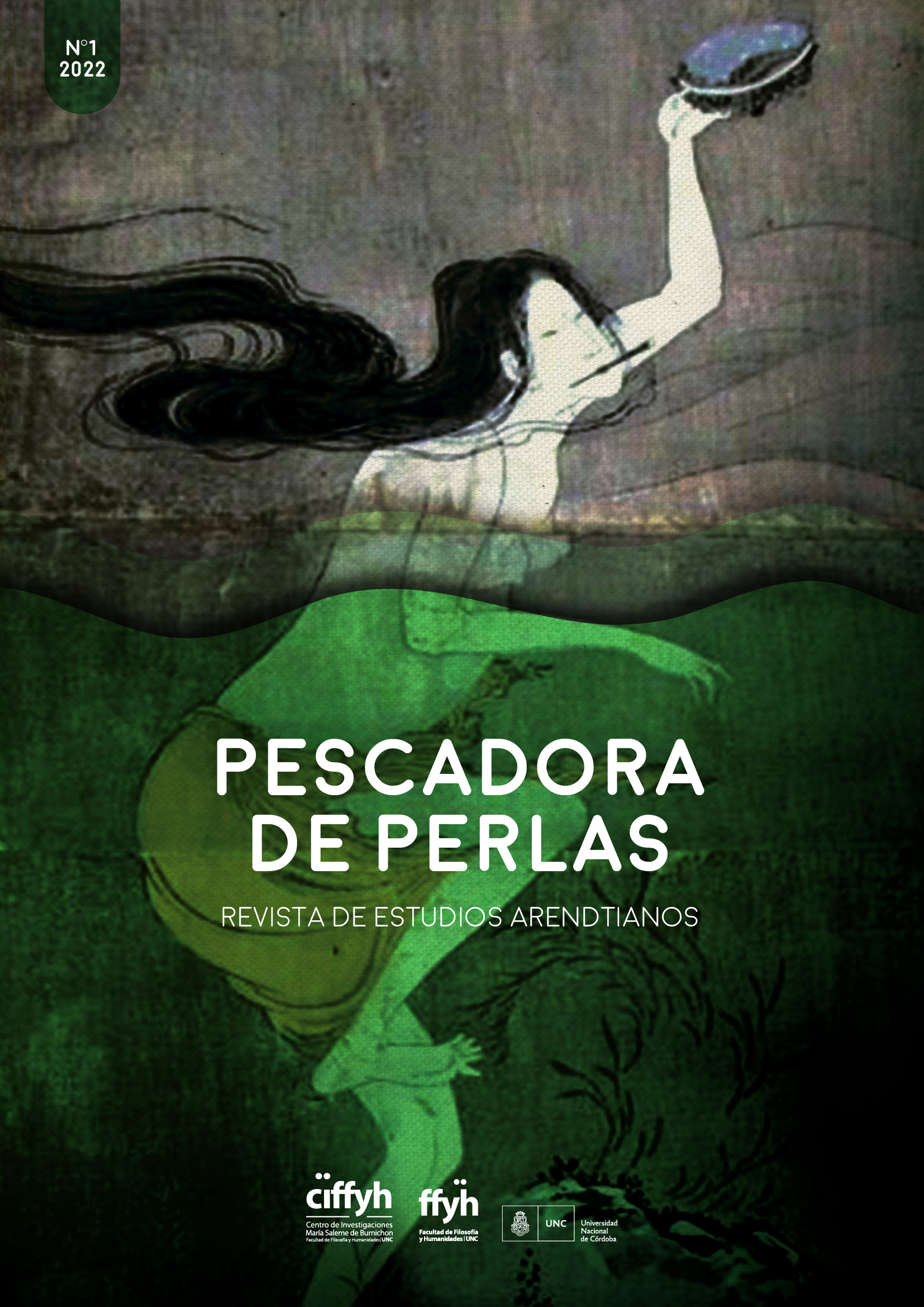The Arendtian Idea of Totalitarian Elements After the Defeat of Totalitarianisms
Keywords:
post-totalitarian elements, war, technique, opressionAbstract
Arendt's lucidity in describing the novelty of totalitarianism should not obscure the thinker's judgment that, after the military or political defeat of Nazism and Stalinism, factors persist in the contemporary world that can lead to heterogeneous crystallizations of totalitarian phenomena. There are at least three circles of situations in which Arendt seems to detect potentially totalitarian elements: the warlike use of nuclear energy; the power of contemporary science-technology to redirect natural processes on and against the Earth; the persistence of extreme forms of oppression and misery, tempting to "totalitarian solutions". As the reverse of the origins analyzed in the great work of 1951, they would be factors given in the present and operable in an uncertain future, which, however, keep intrinsic analogies with the formulas more typical of the totalitarian phenomenon: "everything is possible-everything is necessary-everything is recreable". In scattered places in her work Arendt alludes to each of these circles and their connections, which would show how totalitarianism is not an archived event.
References
Agamben, G. (1998). Homo sacer. El poder soberano y la nuda vida. (Trad. Antonio Gimeno). Pre-textos.
Anders, G. (1994 [1956]). Die Antiquiertheit des Menschen. Beck.
Anders, G. (2003 [1994]), Más allá de los límites de la conciencia. Correspondencia entre el piloto de Hiroshima Claude Eatherly y Günther Anders. (Trad. Vicente Gómez Ibáñez). Paidós.
Arendt, H. (1987 [1951]). Los orígenes del totalitarismo. (Trad. Guillermo Solana). Alianza Universidad.
Arendt, H. (1988 [1963]). Sobre la revolución. (Trad. Pedro Bravo). Alianza Editorial.
Arendt, H. (1993 [1958]). La condición humana. (Trad. Ramón Gil Novales). Paidós.
Arendt, H. (1993b [1968]). Between Past and Future. Penguin Books.
Arendt, H. (1997). ¿Qué es la política? (Trad. Rosa Sala Carbó). Paidós.
Arendt, H. (2005). Ensayos de comprensión 1930-1954. (Trad. Agustín Serrano de Haro). Caparrós.
Arendt, H. y Enzensberger, H.M. (2006). Política y crimen. Un intercambio epistolar. (Trad. Agustín Serrano de Haro). Revista de Occidente 306, 103-113.
Arendt, H. (2007). Reflexiones sobre la Revolución húngara. En Karl Marx y la tradición del pensamiento político occidental. (Trad. Agustín Serrano de Haro). Encuentro
Arendt, H. (2019). Pensar sin asideros I. Ensayos de comprensión 1953-1975. Volumen I. (Trad. Roberto Ramos Fontecoba). Página Indómita. La Guerra Fría y Occidente
Campillo, A. (2021). In Praise of the Terrestrial Condition. HannahArendt.net 1(11), 7-29.
Fackenheim, E. (2008). Reparar el mundo. Fundamentos para un pensamiento judío futuro. (Trad. Tania Chechi). Encuentro.
Fuentes, J.J. (2011). Vida, natalidad y libertad en Hannah Arendt. Objeciones a ciertas lecturas biopolíticas del pensamiento arendtiano. Isegoría 44, 239-255.
Jaspers, K. (1957). Die Atombombe und die Zukunft des Menschen. Piper.
Downloads
Published
Issue
Section
License
Copyright (c) 2022 Agustín Serrano de Haro

This work is licensed under a Creative Commons Attribution-NonCommercial-ShareAlike 4.0 International License.
Consultar los Avisos de derecho de autor. Aquellos autores/as que tengan publicaciones con esta revista, aceptan los términos siguientes:
- Los/as autores/as conservarán sus derechos de autor sobre el texto, y garantizarán a la revista el derecho de primera publicación, el cual estará simultáneamente sujeto a la Licencia de reconocimiento de Creative Commons: Atribución – No Comercial – Compartir Igual (by-nc-sa); no se permite un uso comercial de la obra original ni de las posibles obras derivadas, la distribución de las cuales se debe hacer con una licencia igual a la que regula la obra original.
- Después de la publicación, los trabajos podrán ser reproducidos por los autores en otros medios siempre que no se omita la indicación de la publicación original en esta revista. En este sentido, los autores/as podrán adoptar otros acuerdos de licencia no exclusiva de distribución de la versión de la obra publicada (p. ej.: al depositarla en un archivo institucional o publicarla en un volumen monográfico) siempre que se indique la publicación inicial en Pescadora de Perlas.
- La cesión de derechos de primera publicación de los/as autores otorga a Pescadora de Perlas autorización para que el trabajo sea colocado en el repositorio institucional de la Universidad Nacional de Córdoba y difundido a través de las bases de datos.



